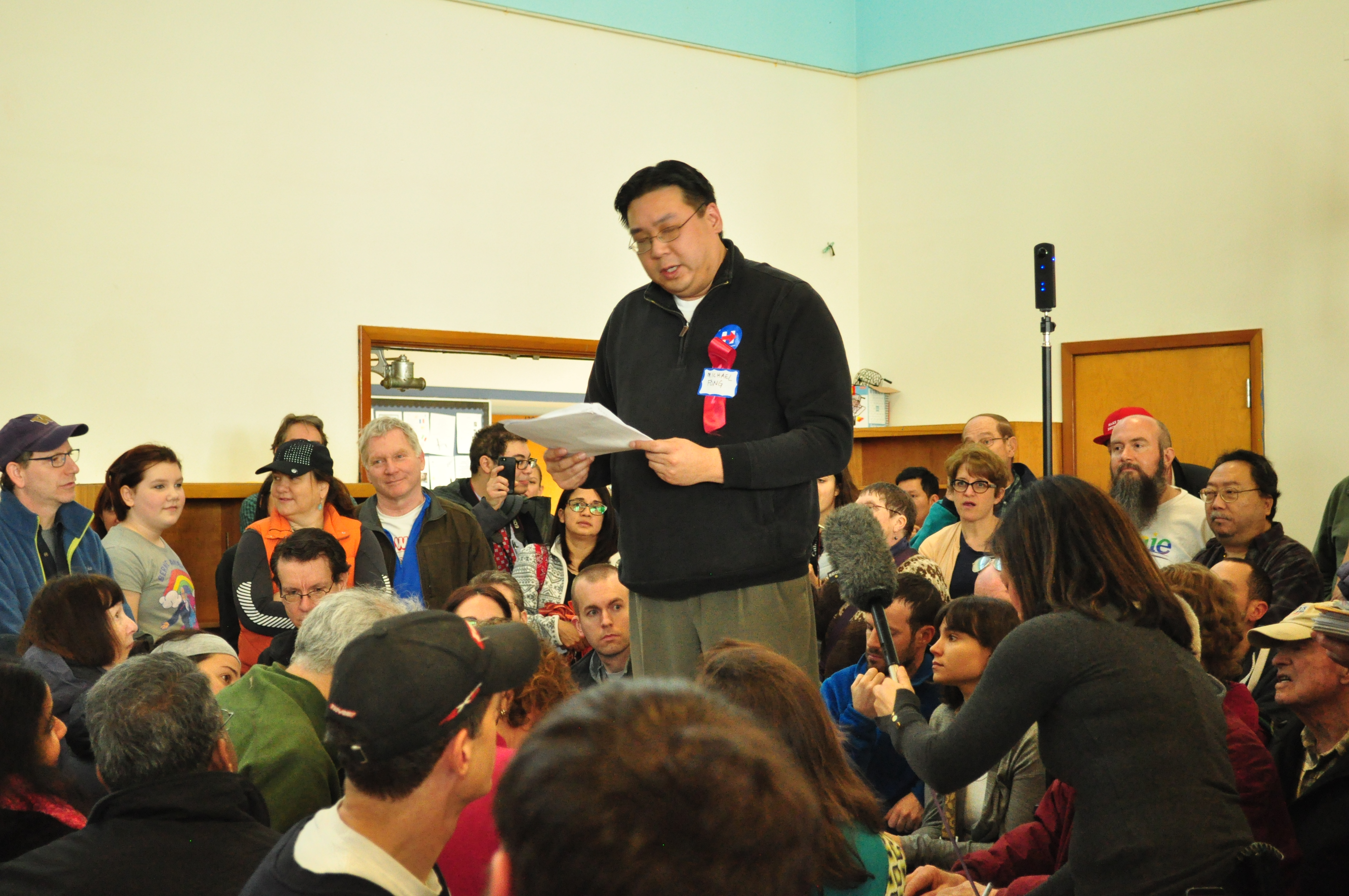Washington Democratic caucuses, 2016 on:
[Wikipedia]
[Google]
[Amazon]
The 2016 Washington Democratic presidential caucuses were held on March 26, 2016, in the U.S. state of


Washington
Washington commonly refers to:
* Washington (state), United States
* Washington, D.C., the capital of the United States
** A metonym for the federal government of the United States
** Washington metropolitan area, the metropolitan area centered o ...
as one of the Democratic Party Democratic Party most often refers to:
*Democratic Party (United States)
Democratic Party and similar terms may also refer to:
Active parties Africa
*Botswana Democratic Party
*Democratic Party of Equatorial Guinea
*Gabonese Democratic Party
*Demo ...
's primaries ahead of the 2016 presidential election
This national electoral calendar for 2016 lists the national/ federal elections held in 2016 in all sovereign states and their dependent territories. By-elections are excluded, though national referendums are included.
January
*7 January: Kiri ...
.
On the same day, Democratic caucuses were held in Alaska
Alaska ( ; russian: Аляска, Alyaska; ale, Alax̂sxax̂; ; ems, Alas'kaaq; Yup'ik: ''Alaskaq''; tli, Anáaski) is a state located in the Western United States on the northwest extremity of North America. A semi-exclave of the U.S. ...
and Hawaii
Hawaii ( ; haw, Hawaii or ) is a state in the Western United States, located in the Pacific Ocean about from the U.S. mainland. It is the only U.S. state outside North America, the only state that is an archipelago, and the only state ...
. While the Republican primary was later held on May 24, 2016.
Sanders overwhelmingly won the March 26 caucus which had about 230,000 participants, winning 72.7% of the state's legislative district delegates to Clinton's 27.1%, giving Sanders a net gain of 47 pledged delegates.
Later, the state also held a non-binding primary vote on May 24, in which Clinton received about 52% of the vote – although this has no actual bearing on the delegate count for the nomination.
Opinion polling


Results
Analysis
Sanders scored a landslide victory in the Washington caucus. His victory did not come as a huge surprise, sinceSeattle
Seattle ( ) is a seaport city on the West Coast of the United States. It is the seat of King County, Washington. With a 2020 population of 737,015, it is the largest city in both the state of Washington and the Pacific Northwest regio ...
as a city had donated the most money per capita to the Bernie Sanders for President Campaign, and Washington state (particularly Seattle) has a history of electing more left-leaning politicians including other self-proclaimed socialists
Socialism is a left-wing economic philosophy and movement encompassing a range of economic systems characterized by the dominance of social ownership of the means of production as opposed to private ownership. As a term, it describes the eco ...
to office. Sanders won all counties in the state on the day of the caucus.
Clinton had lost the Washington caucus eight years earlier to Barack Obama
Barack Hussein Obama II ( ; born August 4, 1961) is an American politician who served as the 44th president of the United States from 2009 to 2017. A member of the Democratic Party, Obama was the first African-American president of the ...
.
At a rally in Wisconsin
Wisconsin () is a state in the upper Midwestern United States. Wisconsin is the 25th-largest state by total area and the 20th-most populous. It is bordered by Minnesota to the west, Iowa to the southwest, Illinois to the south, Lake M ...
on March 26, Sanders told supporters "We knew from day one that politically we were going to have a hard time in the Deep South, but we knew things were going to improve when we headed west."
Clinton won the Washington Democratic Primary, but lost the caucus. The same was true with Nebraska. She won the Primary and lost the caucus. In both states, despite the primary being non-binding it had significantly higher turnout than the caucuses, fueling criticism that caucuses are undemocratic and a form of voter suppression
Voter suppression is a strategy used to influence the outcome of an election by discouraging or preventing specific groups of people from voting. It is distinguished from political campaigning in that campaigning attempts to change likely voting ...
. For the 2020 Democratic Party presidential primaries, 2020 nominating process, Washington and Nebraska both replaced their caucuses with binding primaries to allocate the states' delegates.
See also
* 2016 Washington Republican presidential primaryReferences
{{2016 Democratic primaries 2016 United States Democratic presidential primaries by state, Washington 2016 Washington (state) elections, Democratic caucuses Washington (state) Democratic caucuses, 2016